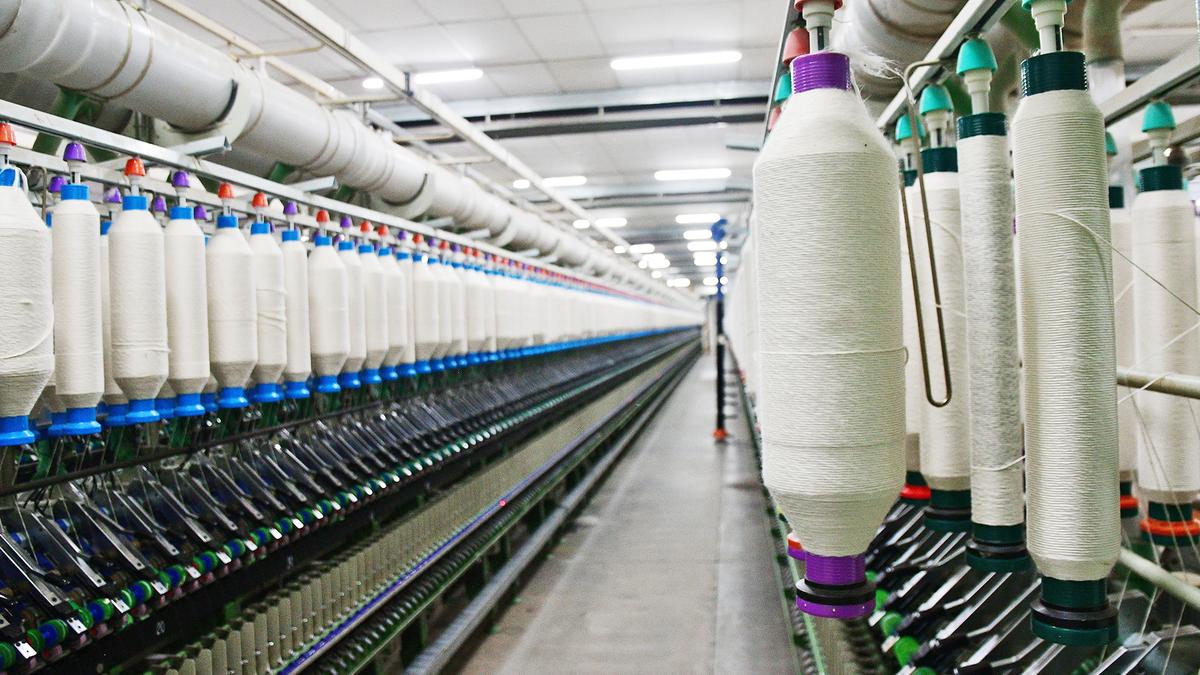
The increase of the 5% limit for garments from ₹1,000 each to ₹2,500 is a positive move, said the Cloth Manufacturers Association of India (CMAI). File
| Photo Credit: The Hindu
The textile industry, which welcomed the revision of GST rates for the textile value chain in both manmade fibre and cotton sectors, expressed disappointment over 18% duty for garments priced above ₹2,500 each.
The increase of the 5% limit for garments from ₹1,000 each to ₹2,500 is a positive move, said the Cloth Manufacturers Association of India (CMAI). However, in the entire textile value chain from fibre to garment, garments above ₹2,500 are the only products which are not at 5%. “We earnestly request the GST Council to remove this anomaly and either place all garments, irrespective of the price, at 5% or fix a more reasonable and realistic price level (for 18%).”
Also read: GST Council meeting highlights
“Garments above the price of ₹2,500 are also consumed in large numbers by the common man and middle class, especially woollen clothing, occasion wear, Indian traditional clothing, handlooms, embroidered clothes produced by artisans and traditional weavers. These will see a significant price increase due to this change of GST rate,” it said.
According to Sanjay Jain, chairman of the national textiles committee of the Indian Chamber of Commerce, all formal wear and wedding dresses are priced above ₹2,500 and even a common man spends for dresses during weddings. “Anything that gets expensive will affect sales. Hence, we request the government to have a relook at the 18% duty for garments priced above ₹2,500,” he said.
Rakesh Mehra, chairman of the Confederation of Indian Textile Industry, said rectification of the GST inversion in the manmade fibre (MMF) value chain by aligning MMF fibre and yarn at 5% from 18% and 12% earlier respectively addresses the long-standing blockage of working capital for thousands of spinners and weavers. With over 70%-80% of textile and apparel units in the MSME sector, this reform will ease liquidity pressures and enhance the competitiveness of the industry.
Chairman of the Southern India Mills Association, S.K. Sundararaman, said raw materials of MMF clothing were taxed at 18% and 12%, while fabrics and garments were placed under the 5% slab. This tax structure suffered severe duty inversion, ultimately making the poor man’s clothing expensive. With this issue rectified, imports would also reduce. Though PTA, MEG and wood pulp, the raw materials for manufacture of polyester and viscose respectively, continue to attract 18%, the revised change in the law to provide 90% provisional refund in seven days was the solution for addressing the duty inversion for the MMF producers.
Secretary general of the Polyester Textile and Apparel Industry Association, R.K. Vij, called for reduction of duty for PTA, MEG and wood pulp before September 22, 2025.
Published – September 04, 2025 09:46 pm IST



















